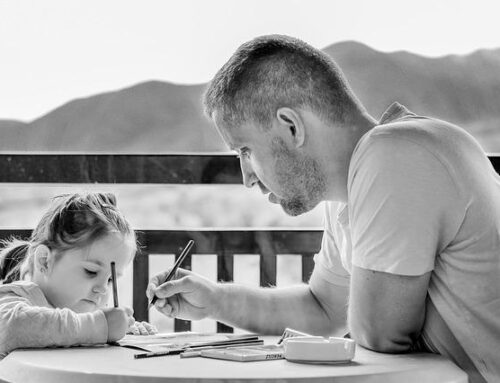Have you ever thought about which emotions you feel ‘allowed’ or encouraged to express? Or vice versa, which ones you are less encouraged to express? You know, the ones that you go to express and feel a gut reaction to stop what you’re doing. People are looking, my mom is changing the subject; I better stop!
Have you ever thought about which emotions feel scarier and which ones you feel pressured to show? Which ones are avoided? If you have not done so, I would encourage you to – doing so can be pretty revealing and spark valuable self-reflection. We are human and everything we feel is human. Part of the beauty of being human is being able to feel every last emotion – even the scary ones. Even the ones that we feel as though we “shouldn’t.”
A lot of this can be tied to what we were allowed to express versus what we were not allowed to express as children. An emotion that usually gets a bad rap and is more “concealed” both as a kid and as adults is anger. Why do we think this is? We all know it leaks out anyway! One’s best attempt to conceal their anger usually results in a poor outcome for all involved.
If we don’t process our anger, it usually comes out in our behavior as aggression towards others when we least expect it. Someone didn’t close the fridge all the way and before we know it, we are exploding on those closest to us. We regret it, feel poorly, and it is a vicious cycle.
After learning this, it feels imperative to know as humans how to express our anger so that it doesn’t leak out into our inner circle and wreak havoc. However, I know dealing with our anger can seem like a daunting process. Where does one start? To help with this, I’d like to leave you with some tips on how to successfully acknowledge and express anger as it comes up throughout the week:
- Validate the emotion for yourself. Feeling anger is a part of being human. This can look like using a positive mantra such as, “It is ok I am feeling anger. I accept myself even when I feel angry.”
- Be curious about the emotion and honor where it is coming from. When has this come up for me before? Are there other underlying emotions leading to the anger? (Sadness, helplessness, etc.) Where do I feel the anger in my body? Is it stuck in one place?
- Express the feeling constructively. In whatever way feels most comfortable to you. Write about what you are feeling. Go for a mindful walk. Engage in a creative hobby. End with some deep breathing (the Prana Breath app is a great resource for this).
With these few simple steps, you are likely to feel at least some decrease in the feelings of anger in your mind and in your body. If not, you may want to continue playing around with a constructive way to express your anger. It may be a process of trial and error, but over time, you will get to know yourself more and know what works for you in the process of expressing anger constructively.
You may also see that it is not coming up in your behavior as much towards others, which helps to break down the vicious cycle. As always, if it is something you want to speak with your counselor about, that is always an option. If you are not currently in counseling and are interested in speaking with someone, check out our clinicians and interns that are accepting clients here.
Be well and remember, honor your anger. It is part of our human nature.





Leave A Comment